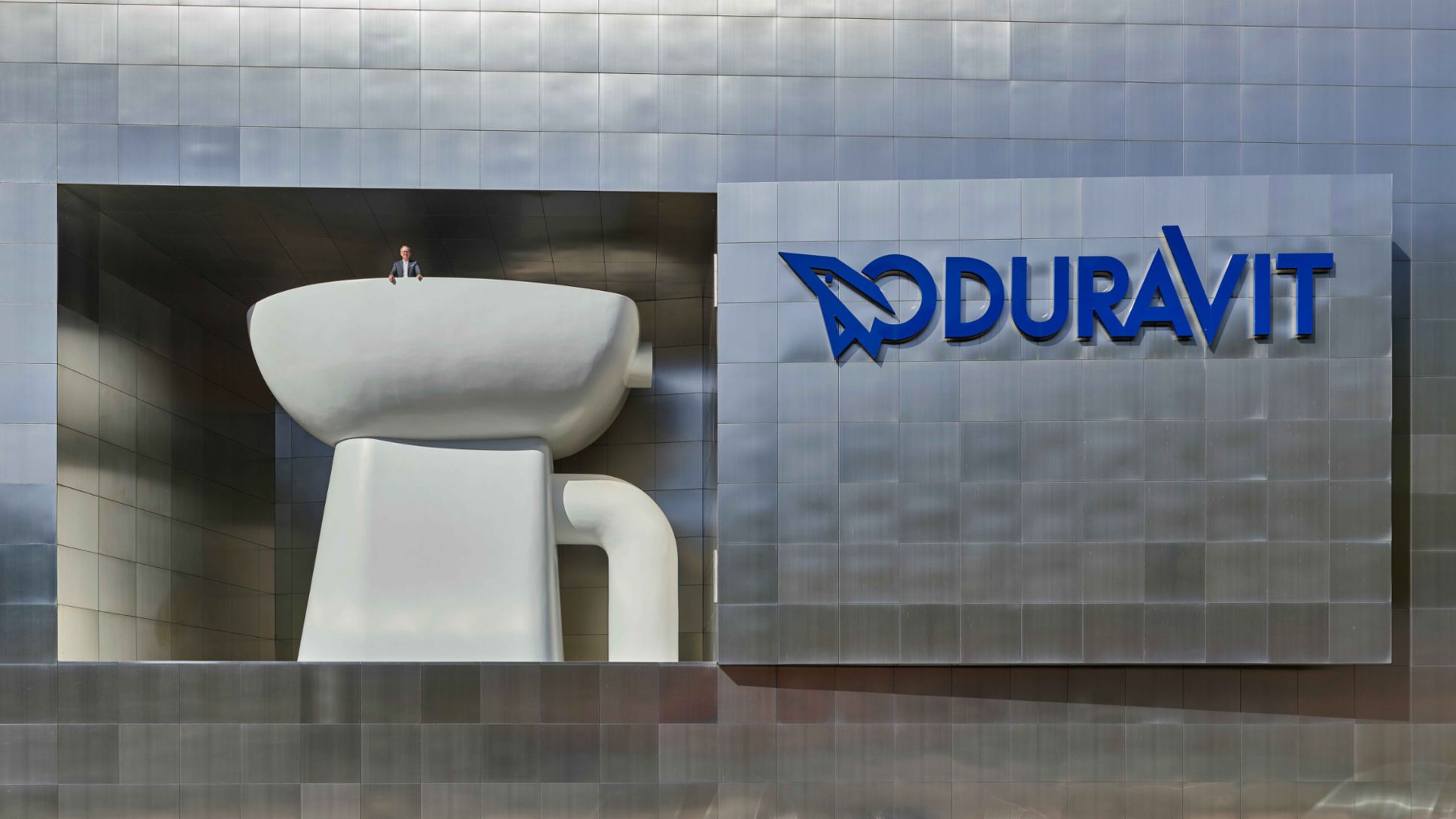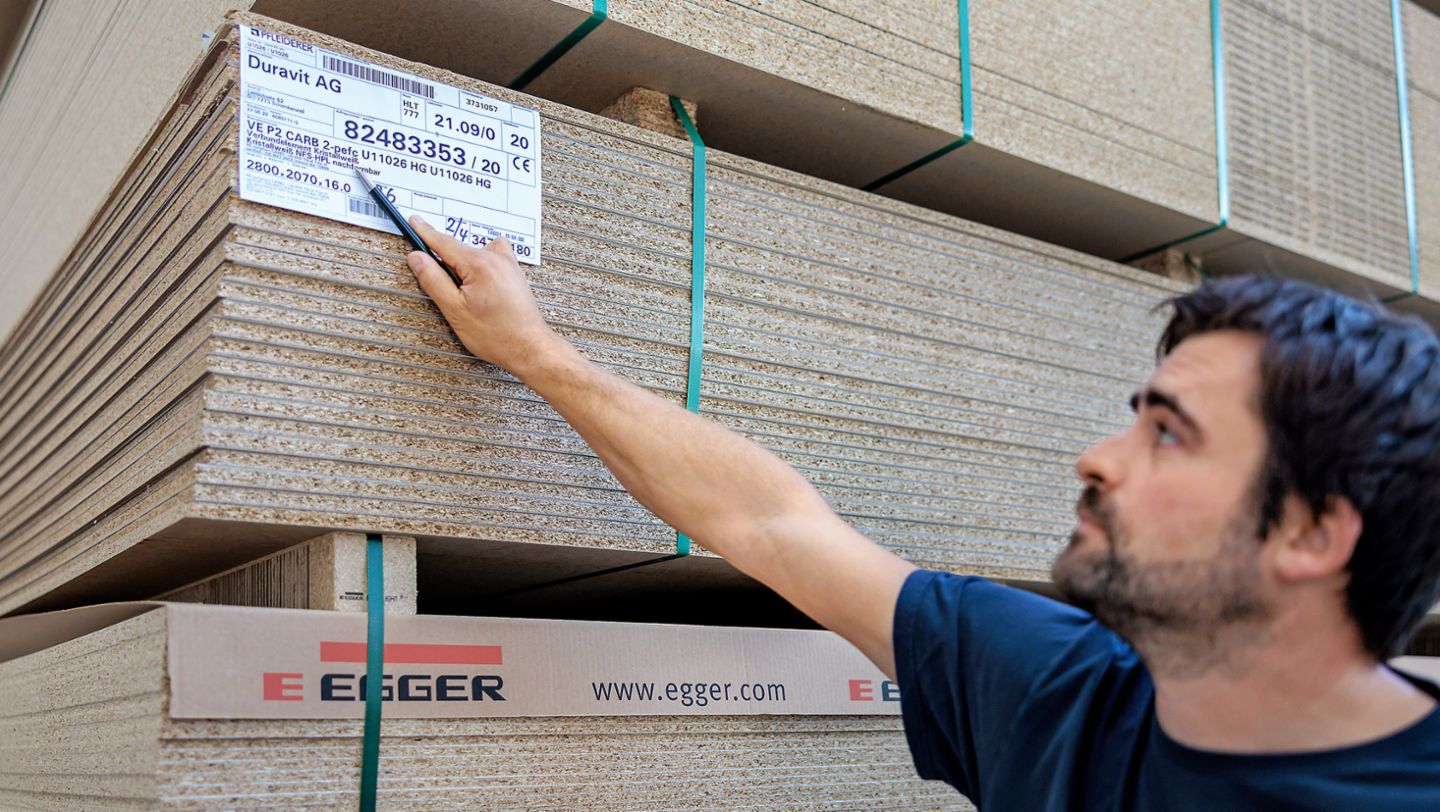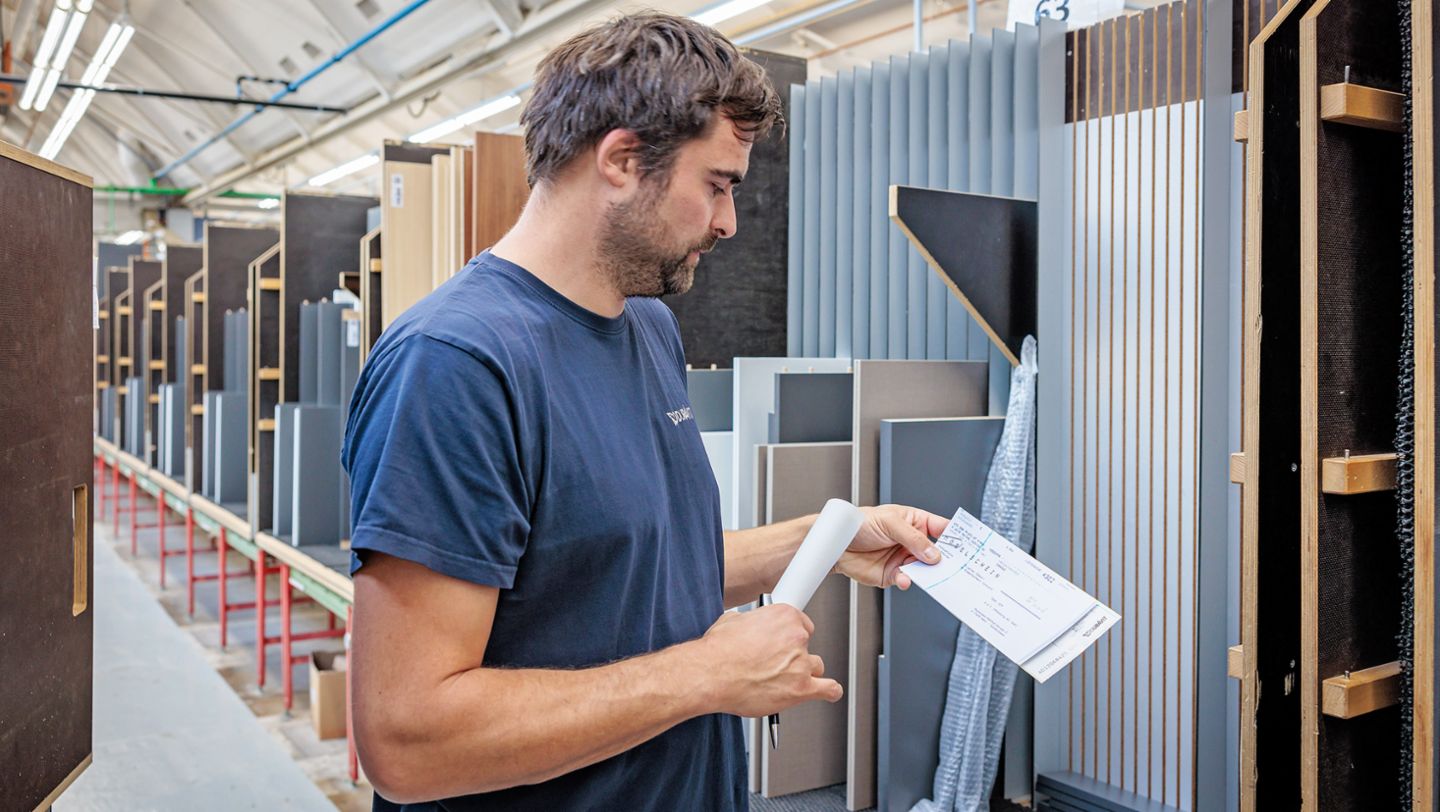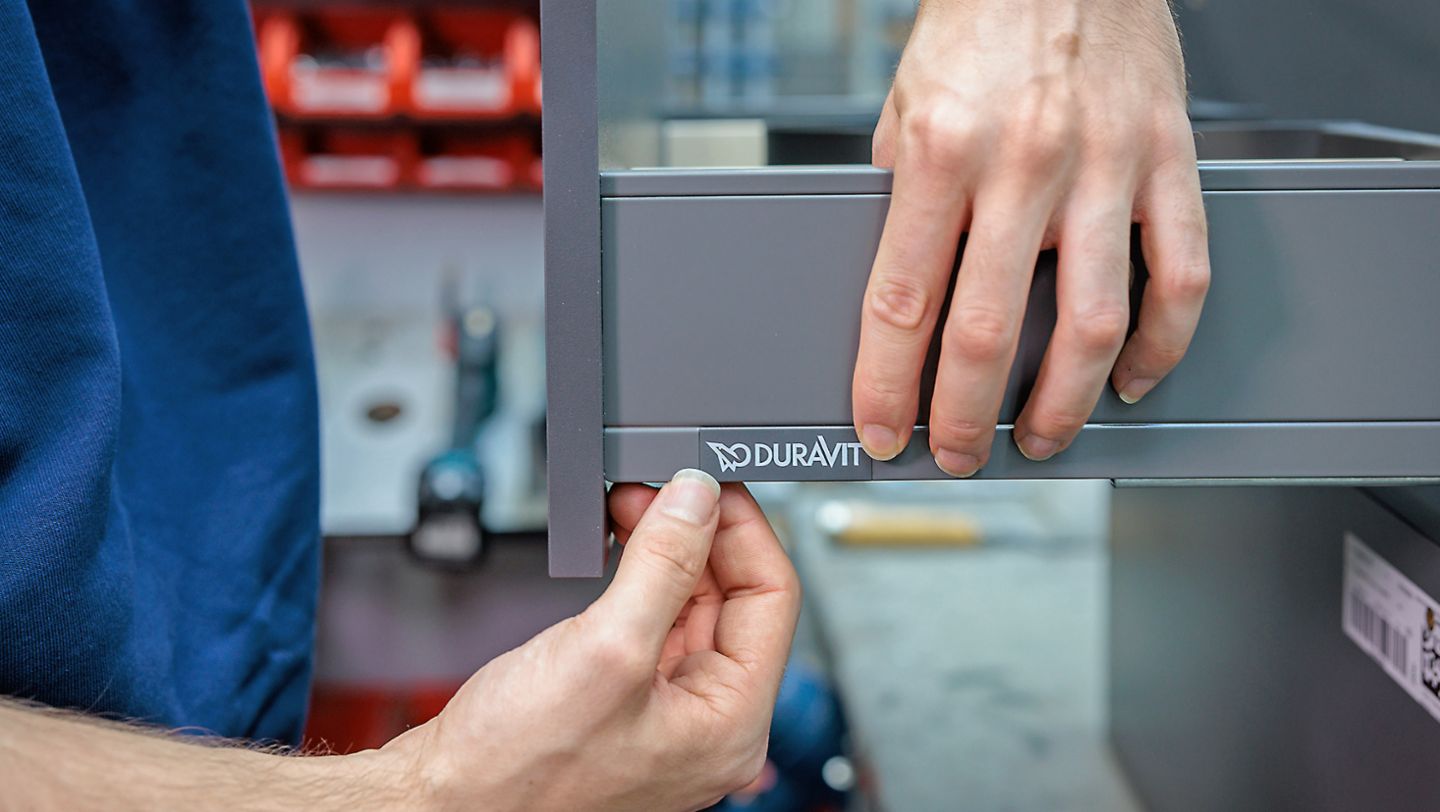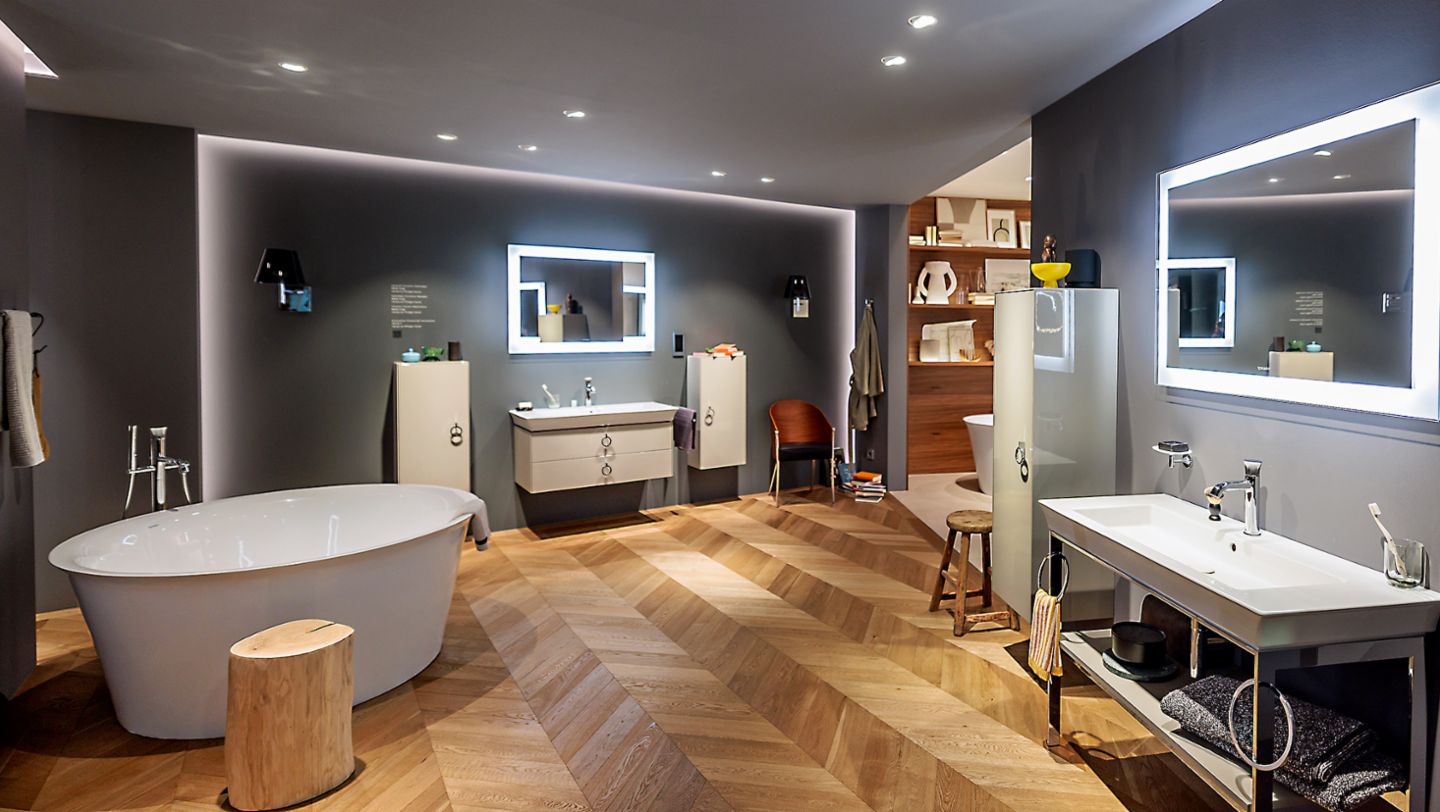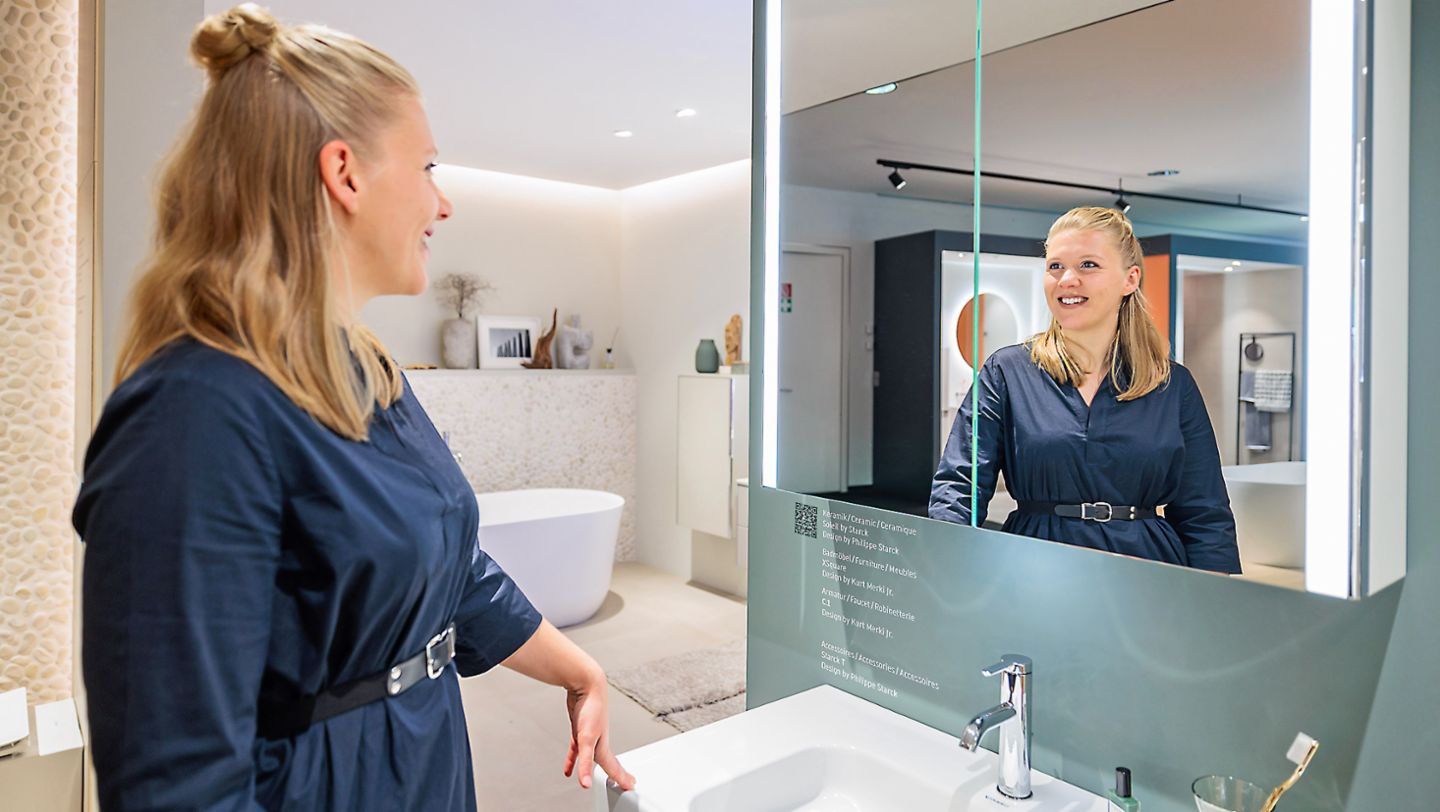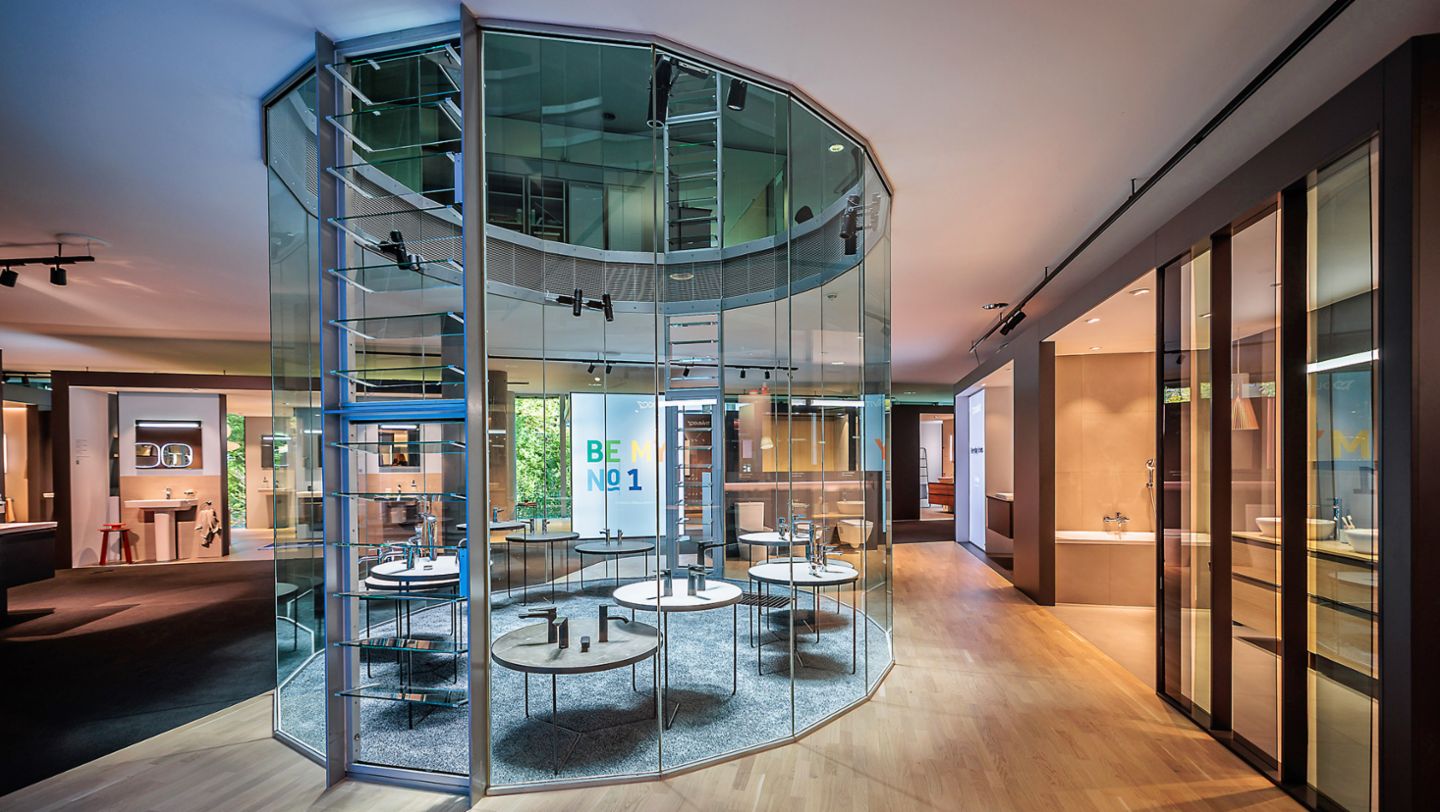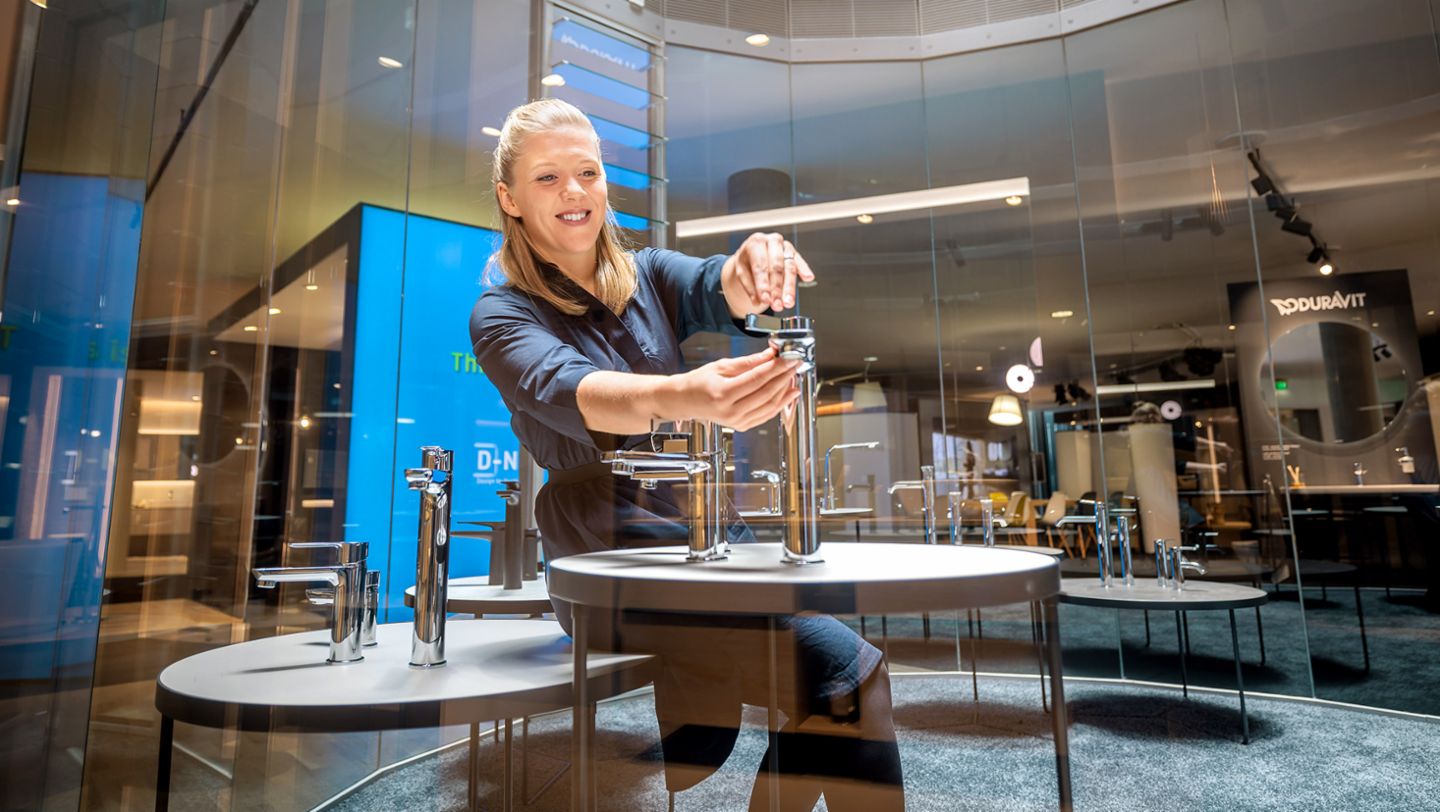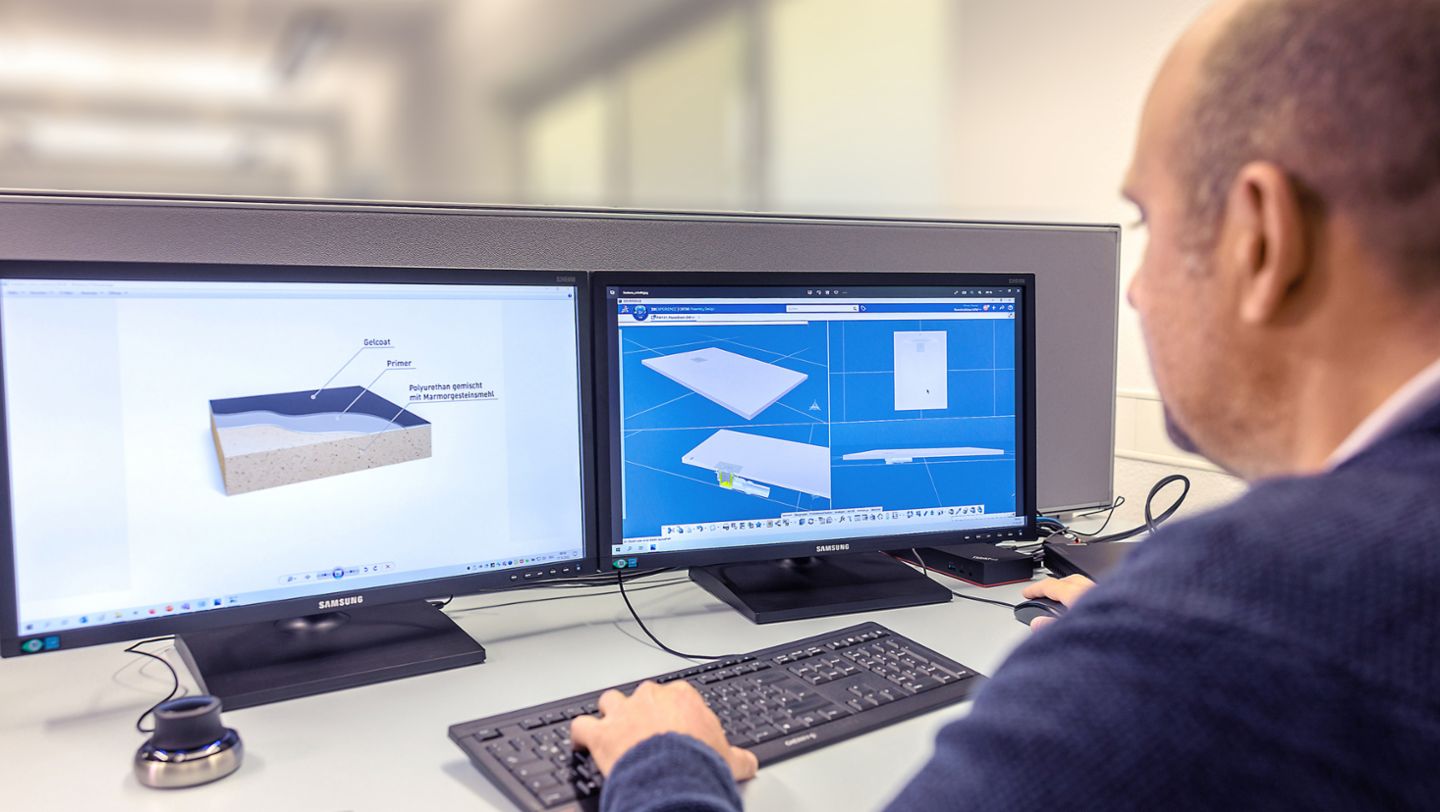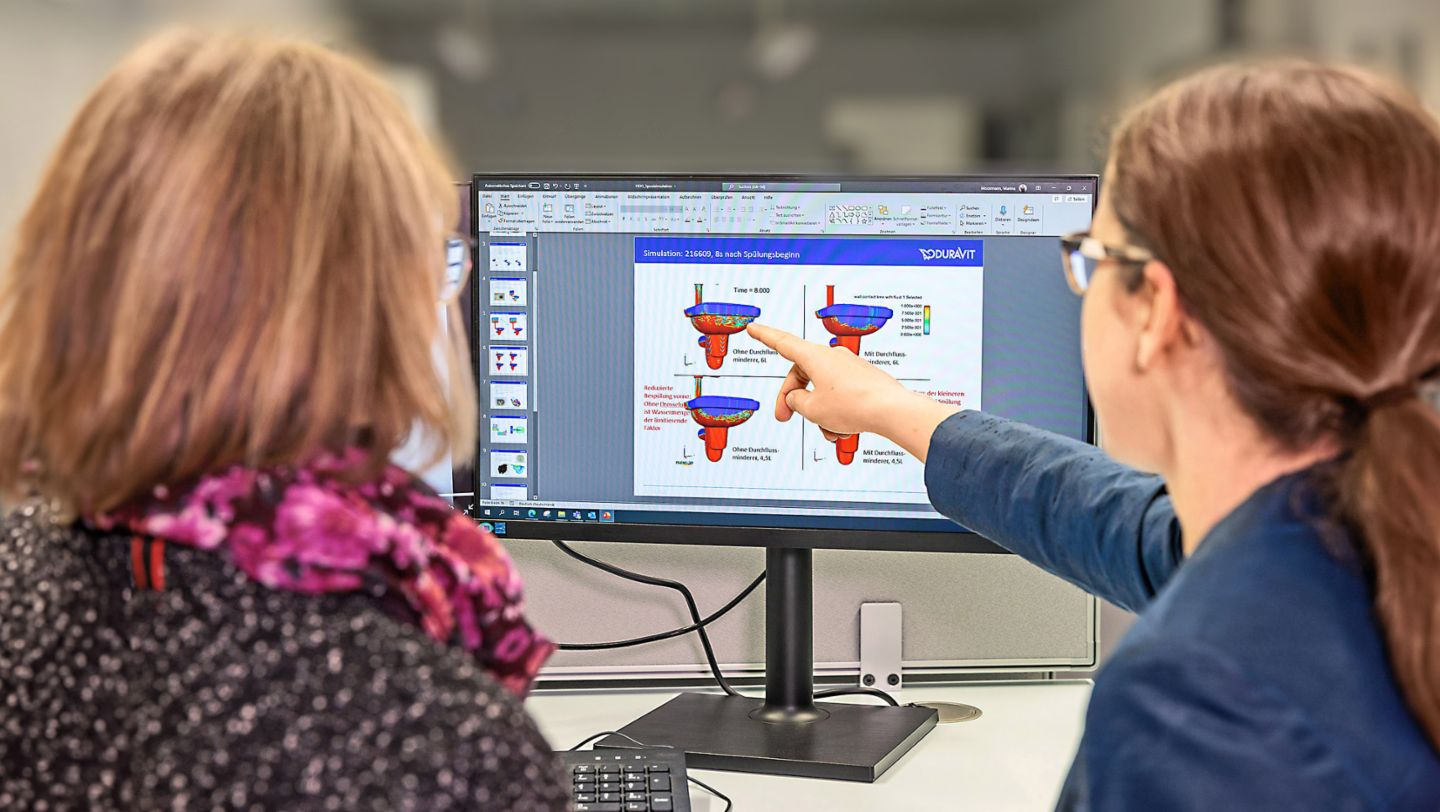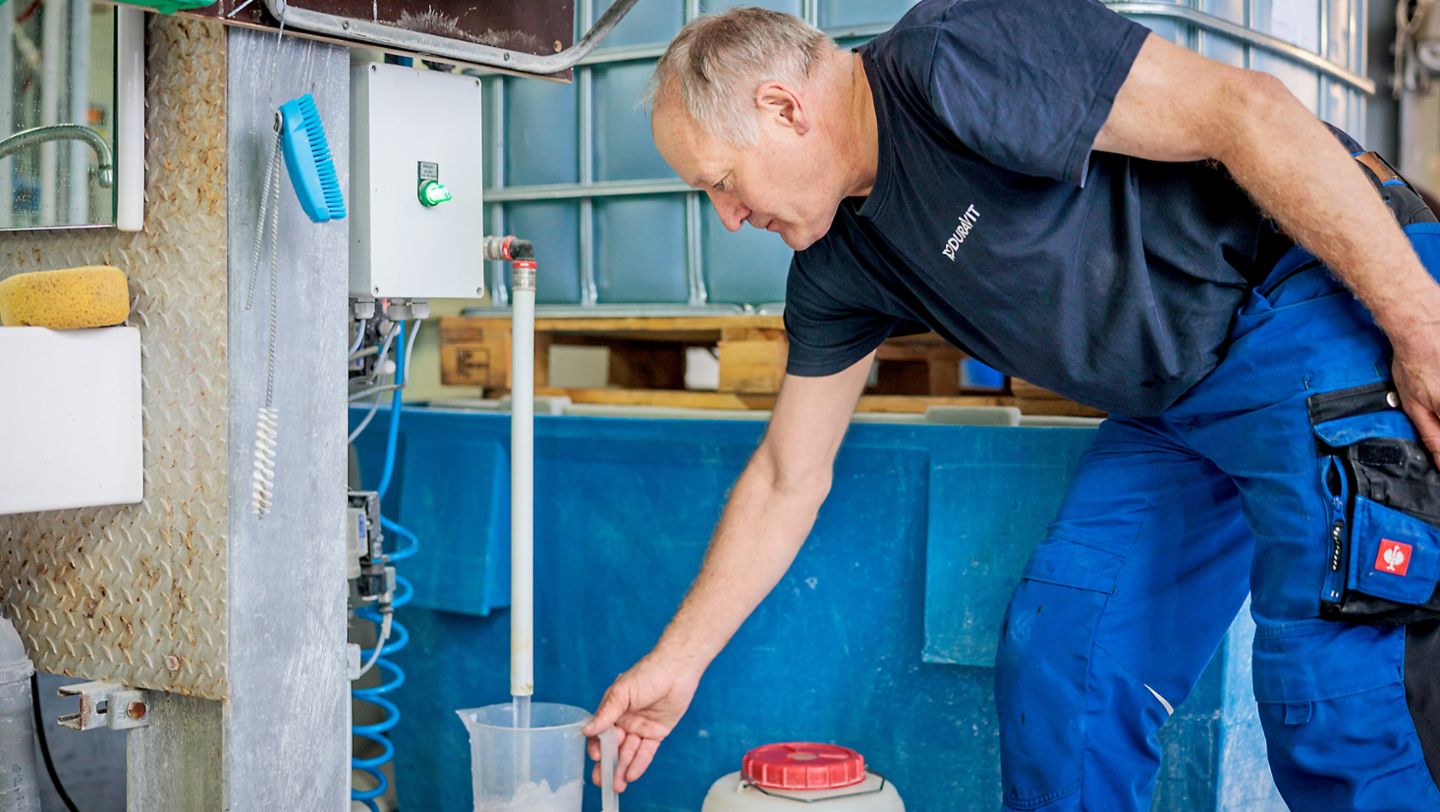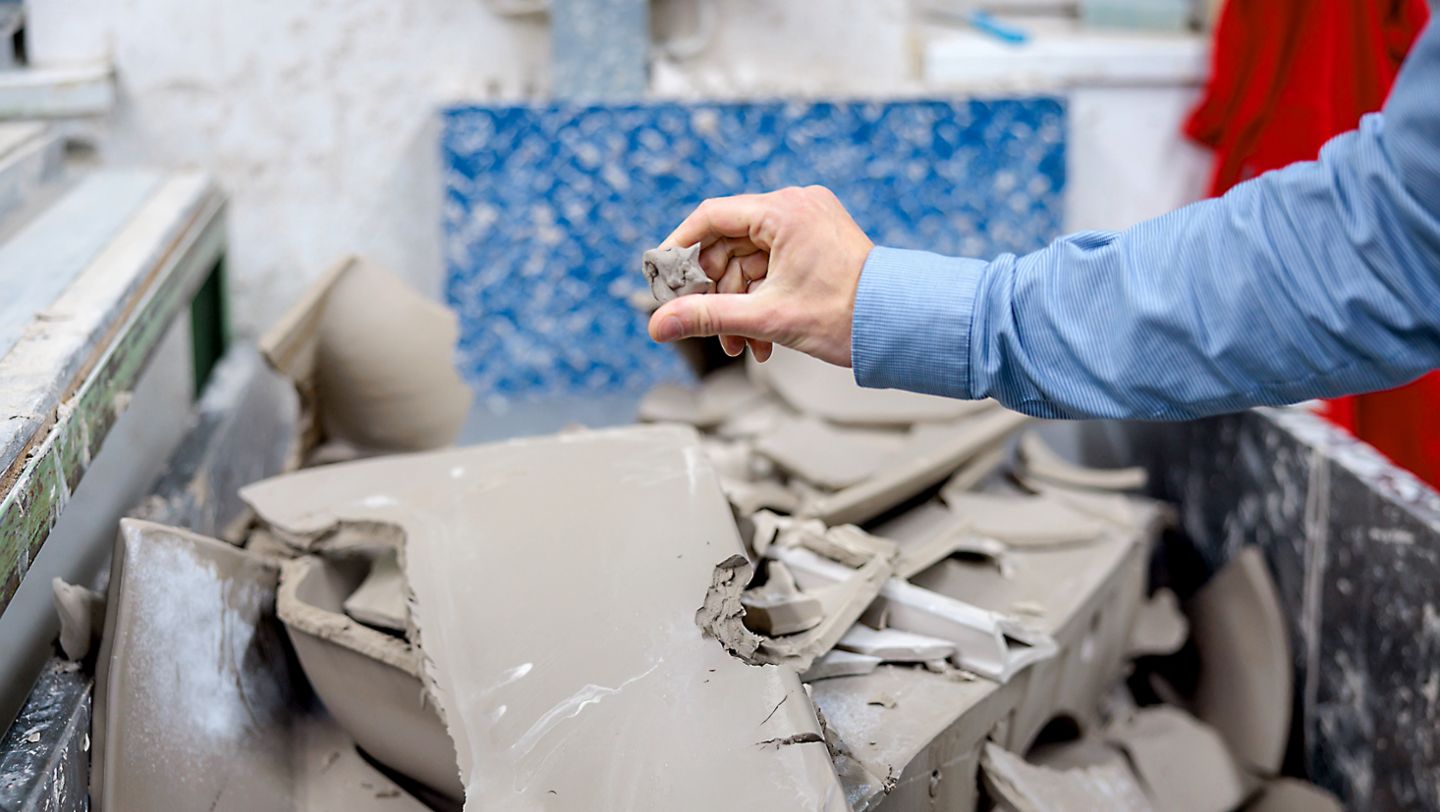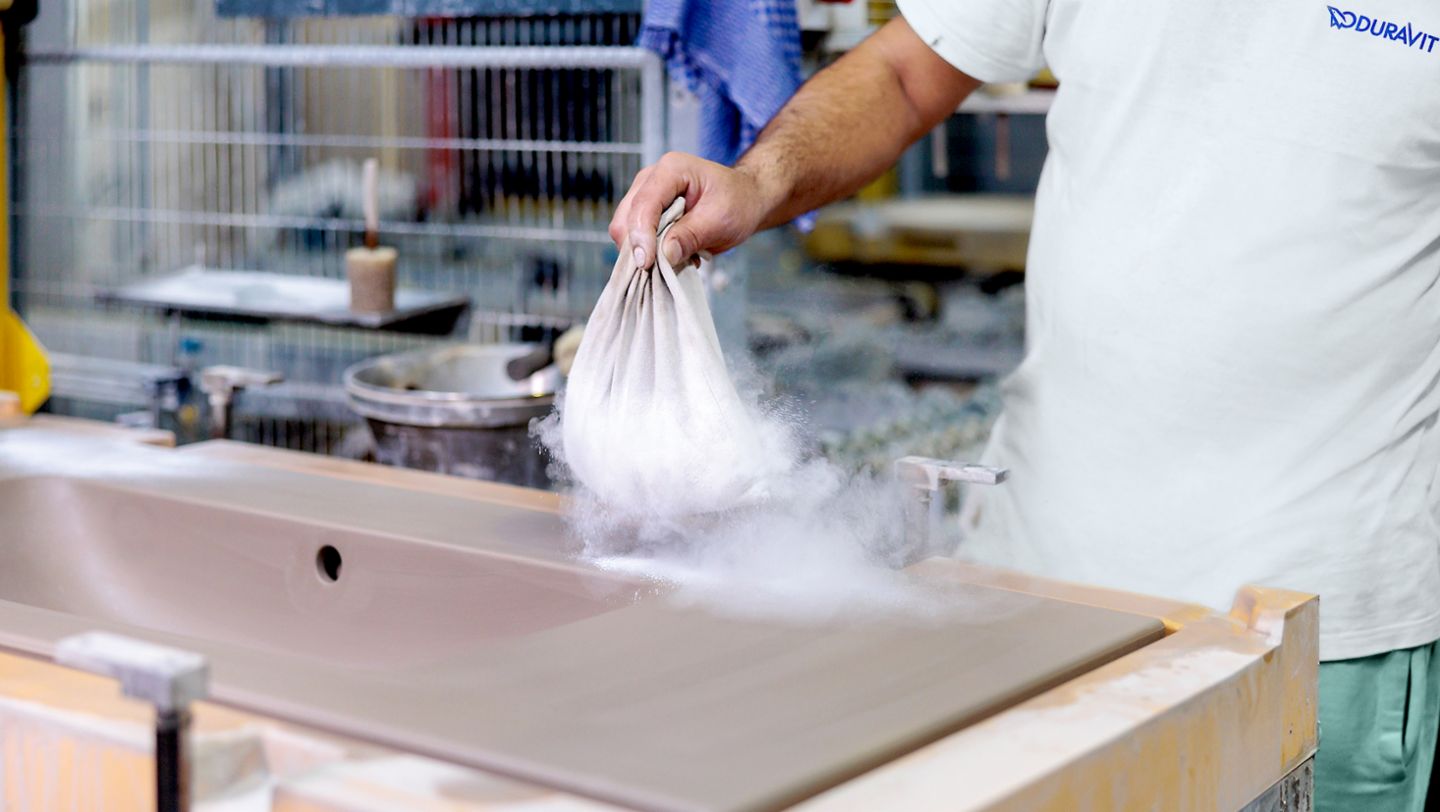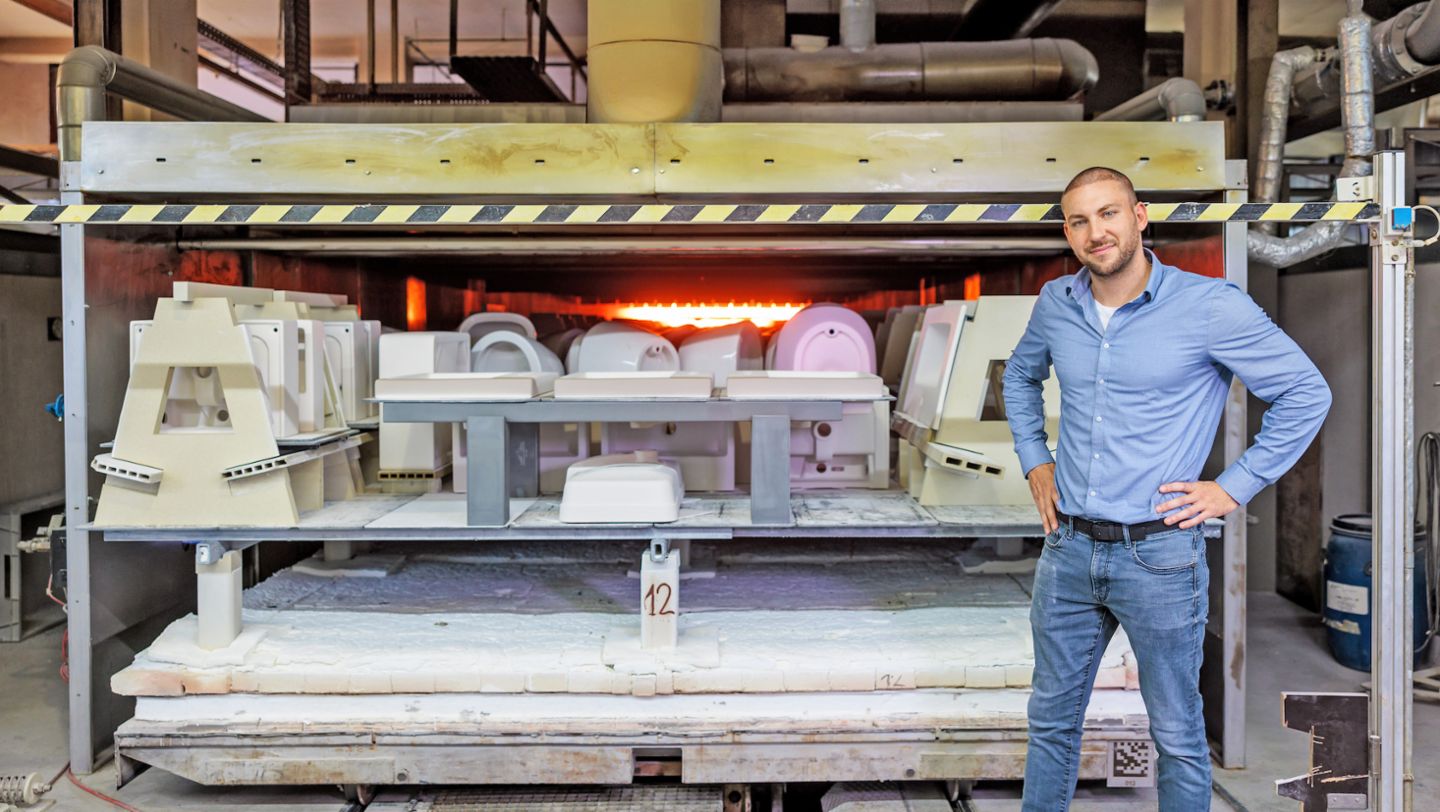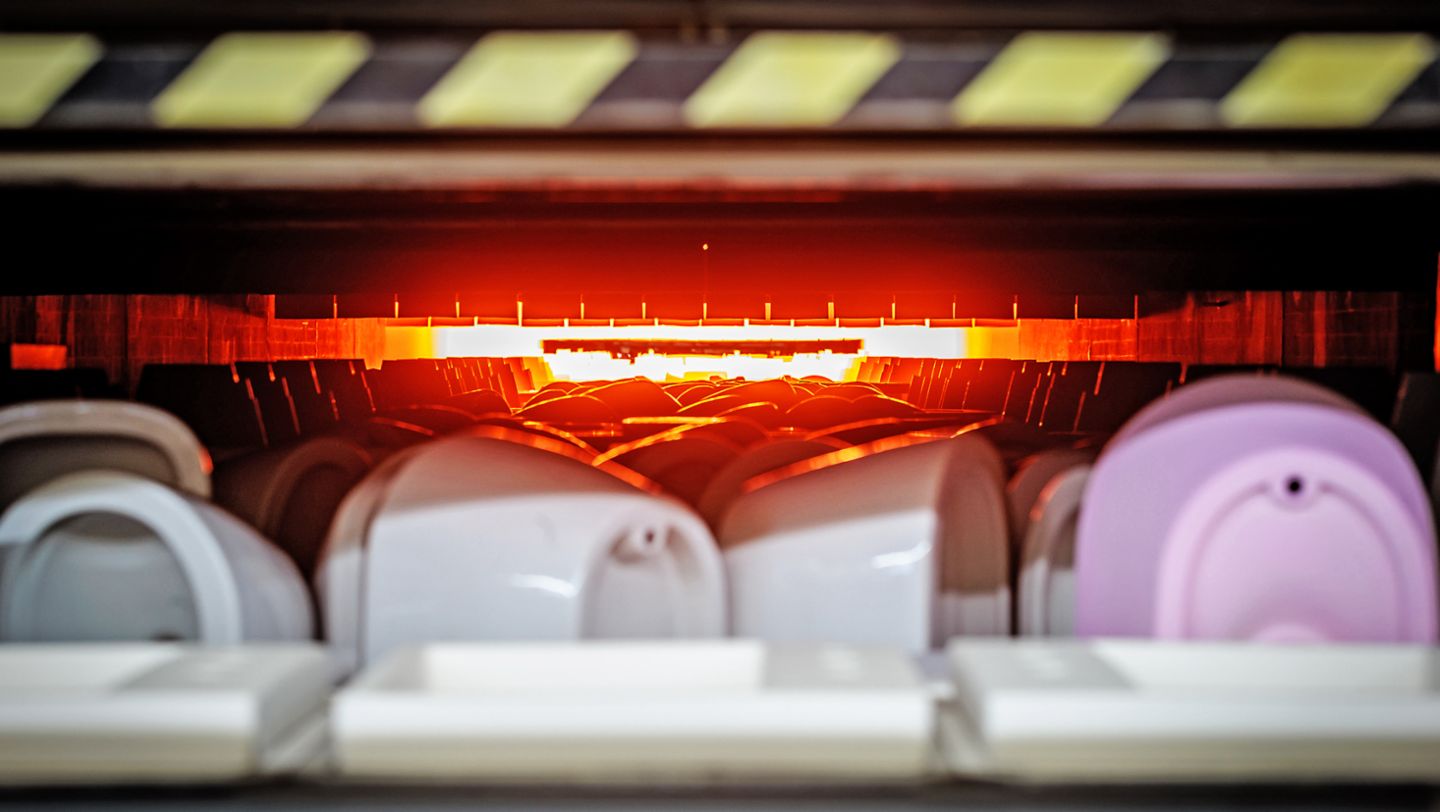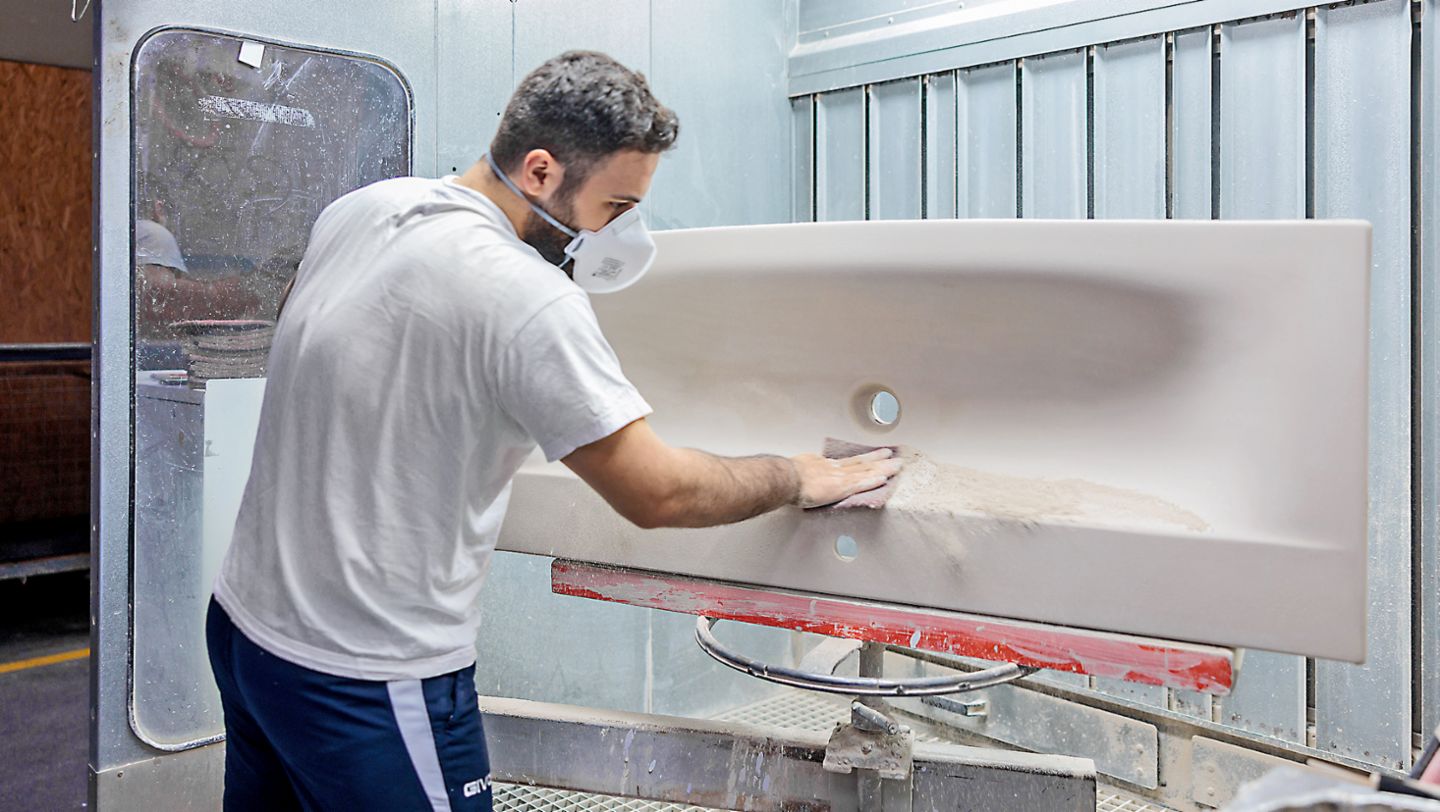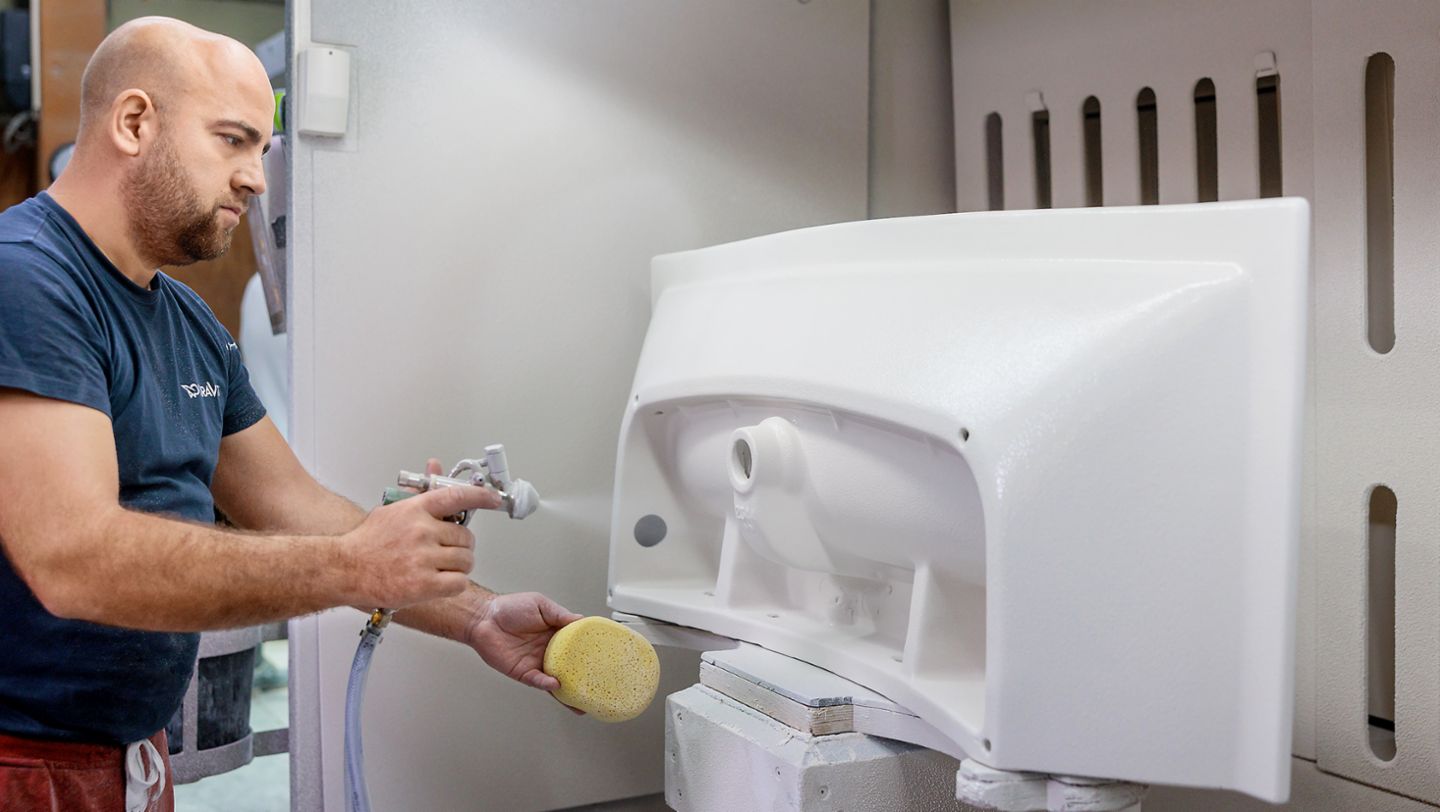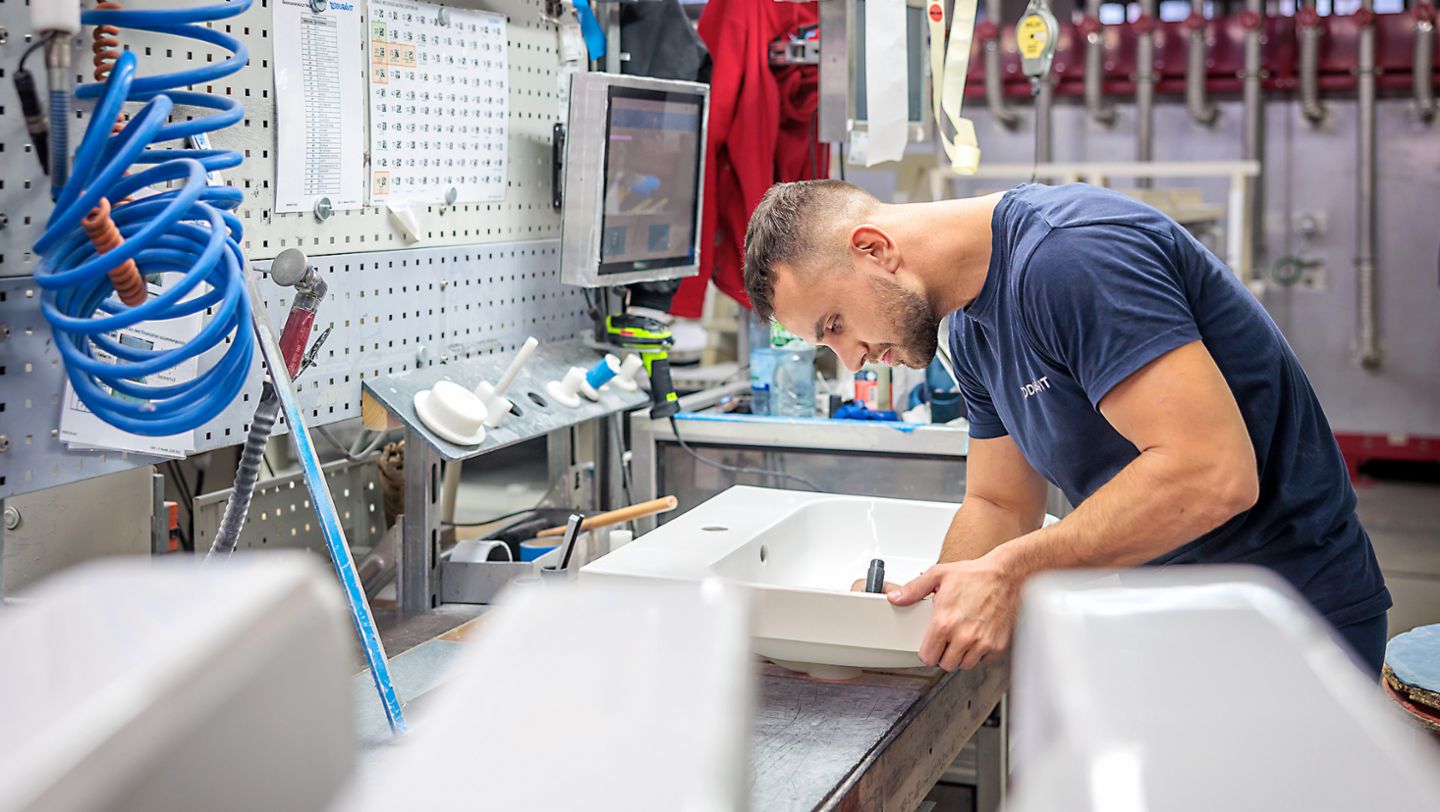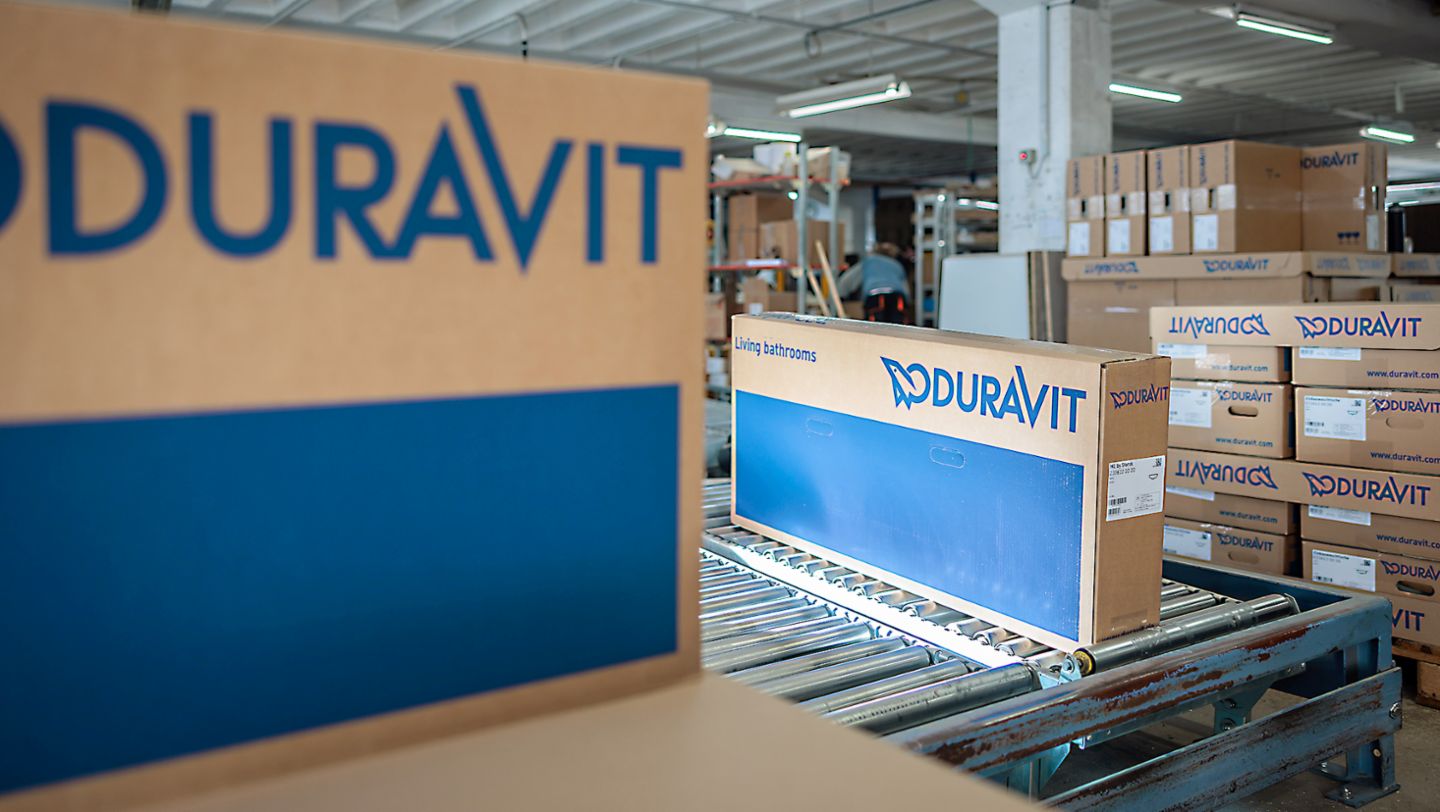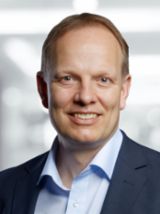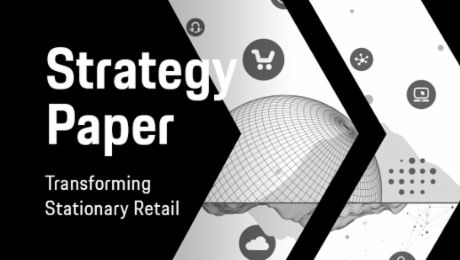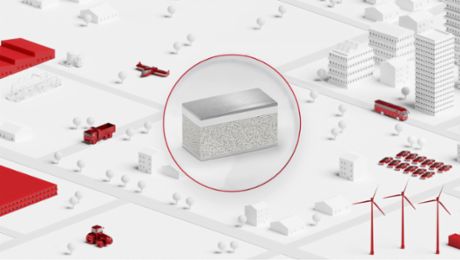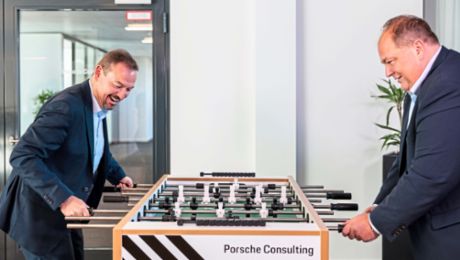A mountain river known as the Gutach winds its powerful way through the picturesque town of Hornberg. Around 5,000 people live in this municipality in the central Black Forest region of southern Germany, a popular destination for vacationers. The source of the Gutach is a mere 12-mile hike away. Its turbulent path crosses the factory grounds of Duravit, a company deeply rooted in the area with more than two centuries of tradition. The river plays an important role in the energy-intensive ceramic production processes for this renowned global maker of bathroom and sanitary ware products. Duravit places a premium on using water resources with as much care as possible. Ever since it was founded, the company has been committed to sustainable action. Sustainability, one might say, is in its genes.
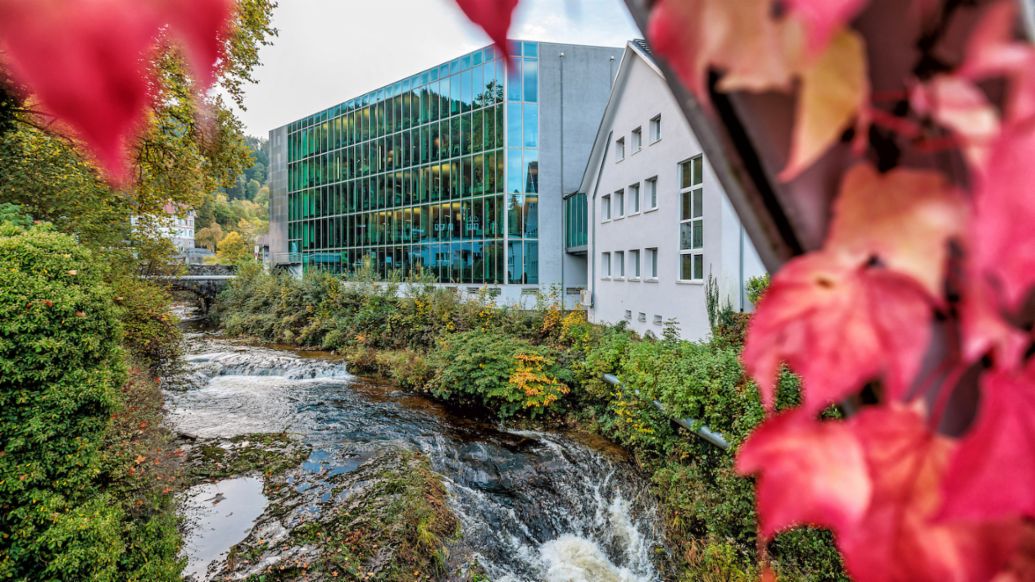
But that alone is not enough for Stephan Tahy, who became Duravit’s CEO in 2020. In order to advance sustainability in the future and to make it the guiding principle for all the company’s actions and future challenges, he has anchored it in Duravit’s strategic corporate goals and brand values. Duravit focuses on four of the 17 Sustainable Development Goals (SDGs) defined in the United Nations’ “Agenda 2030”: responsible consumption and production, clean water and sanitation, climate action, and good health and well-being. The company’s overarching sustainability goal is to become carbon-neutral by 2045.
“Dura” is the core of the mission
The focus on sustainability is already evident in the Duravit brand name. It contains the word “dura,” which stands for longevity — and therefore a sustainable use of resources. It is unsurprising, therefore, that the company is decidedly opposed to a throwaway mentality. “That’s one of our greatest contributions to sustainability,” says Tahy. “We stand for products you can enjoy for a lifetime.” The family-owned company describes itself as the only manufacturer to give customers a lifetime guarantee for its ceramic products. In addition to sanitary wares, Duravit has been producing high-grade bathroom furniture since 1992 at its plant in Schenkenzell, around 20 miles from the main site in Hornberg. Here, too, the company places a priority on long service lives and on wood from domestic sources with PEFC-accredited and thus sustainable forestry.
Outstanding design that wins multiple awards has been one of Duravit’s unique selling points for decades. It joins sustainability, excellence, and well-being to form the brand’s four core values. “Our aim is to create timeless design,” says Tahy. “So we don’t go running after the latest trend or looking to add frills. We say that timeless design is part of our very DNA.” Duravit therefore cultivates long-term global relationships with iconic designers like Philippe Starck, which ensure the enduring quality of its products.
In addition to the priority on durability for its products, the company devotes considerable attention to recycling. That starts back in the product development stage. “Each new product will now be critically examined with respect to sustainability,” says Tahy with emphasis. These efforts have already produced a showcase product: Sustano, the first recyclable mineral-composite shower tray. It represents a genuinely new development on the market thus far. At the company’s eastern German site in Meißen, more than 200 tons of raw materials are centrifuged out of the mass of material in the waste flow and channeled back into production. The centrifuge scheduled for installation at the Hornberg site is expected to recover nearly 10 percent of the material used as of 2024, amounting to 550 tons a year at an annual production volume of around 6,500 tons. Recyclability is also high on the agenda for shipping and delivery. Packaging materials are made to be as recyclable as possible, with a continuous reduction in the share of plastics.
Every drop counts
As for water needs and use, Duravit can already point to a number of sustainability-related achievements. The ceramics maker has reduced the volume of water needed to flush its toilets from 6 to 4.5 or 3 liters. The toilets it has sold in Europe over the past decade have therefore saved around 290 million cubic meters of water a year — with no decline in the quality of the flushing process. But as Tahy insists, “We’re not yet satisfied. We keep working on the technology in order to lower water consumption even further in the future.” The company has also succeeded in optimizing how it uses water for production. A circulation system at the Hornberg site already recycles 60 percent of the water from the production process back into use. And one of the CEO’s special concerns is to ensure clean drinking water for all of his employees throughout the world, especially in regions like the site in India where clean drinking water is by no means a given. A water intake facility on the factory grounds there provides employees and their families with high-quality potable water.
Climate-neutral plant in Canada
The CEO has also set an ambitious target for protecting the climate. Duravit wants to be entirely carbon neutral by 2045 — along its entire value chain. This is no small matter, because ceramics production plants are still strongly dependent on gas as the fuel for heating their kilns. “Carbon neutrality by 2045 might not look very ambitious at first glance,” admits Tahy. “But in fact it is, because reaching this goal requires a major technological advance. We have to define new ways of firing ceramics, and are in the process of putting a quantum leap into practice.”
On July 13, 2023, a major milestone was passed on the road to a sustainable future. That was the day the company laid the cornerstone in Matane in the Canadian province of Quebec for the world’s first climate-neutral ceramics production site. The plant is expected to make 450,000 ceramic pieces a year for the North American market. Duravit is assuming a pioneering role here, because this will be the sector’s first kiln to run on electricity from renewable hydropower. Compared to conventional gas kilns, it will save more than 9,000 tons of CO₂ a year at full capacity. Moreover, all the raw materials will be sourced directly from Canada and the USA, which means short transport distances and more sustainable logistics — as well as additional carbon reductions of more than 1,500 tons a year. “We are very proud of our trailblazing role in promoting sustainability for the sanitary ware industry and addressing the challenges posed by climate change,” says Tahy. “We’re setting standards for innovative solutions in a sector known for high energy needs.”
Ready for green hydrogen
Duravit has laid the technical foundations for integrating green hydrogen as soon as it becomes available on the market. Simulations have already been run in a test project with Linde, the world’s leader on the market for industrial gases. This could reduce the future need for fossil fuels in production. Another major step on the road to climate neutrality is the plan to have solar power supply 50 percent of the electricity needed at all the sites worldwide.
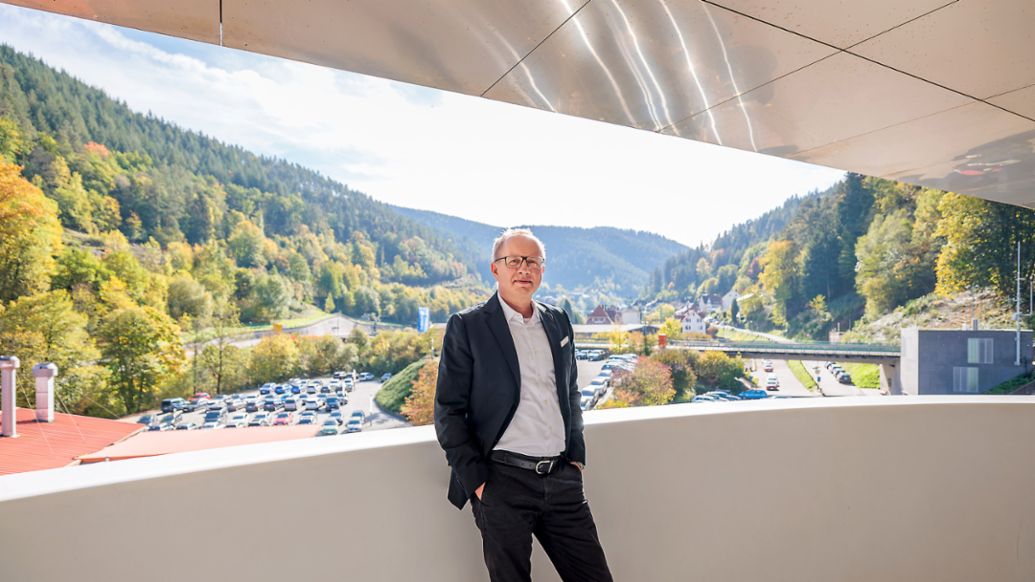
To keep transport routes as short as possible and thereby minimize the associated carbon emissions, the company has been relying for decades now on its proven “local for local” strategy and regional proximity to producers and suppliers. “Duravit has always tried to have its sites make the greatest possible use of local resources,” observes Tahy. Local roots are also evident in the company’s commitment to its home site in Hornberg. For example, the ceramics producer provides financial support for humus acquisition to farmers in the Black Forest conservation area. Farmers use the organic matter to enrich regenerative soil, which in turn binds CO₂. As Tahy explains, “We contribute to sustainability right at our site — and this type of commitment has an authentic quality that embodies our approach.”
Keeping their own house in order
Authenticity ultimately plays the key role in Tahy’s sustainability campaign. “We’ve always tried to find the right path for Duravit. And that means being honest and accountable in everything we do.” For Tahy, authenticity means embracing sustainability in all the company’s activities, both external and internal — and actively involving all the employees. “We want sustainability to be evident in everything we do. We want to be very clear that we’re pursuing it on the strategic level as well. And finally, we want to make people aware that sustainability is something that starts at home and spreads out into the world at large.” With internal actions like the “Putzete” cleaning campaign that was launched in 2022, Duravit draws attention to the topic and gives everyone a chance to join in. The campaign invites employees to clean the area around the company grounds, thereby making a personal contribution to ensuring it remains in good shape. For inhabitants of the Black Forest, that’s actually a point of honor — the boss doesn’t have to ask them twice.
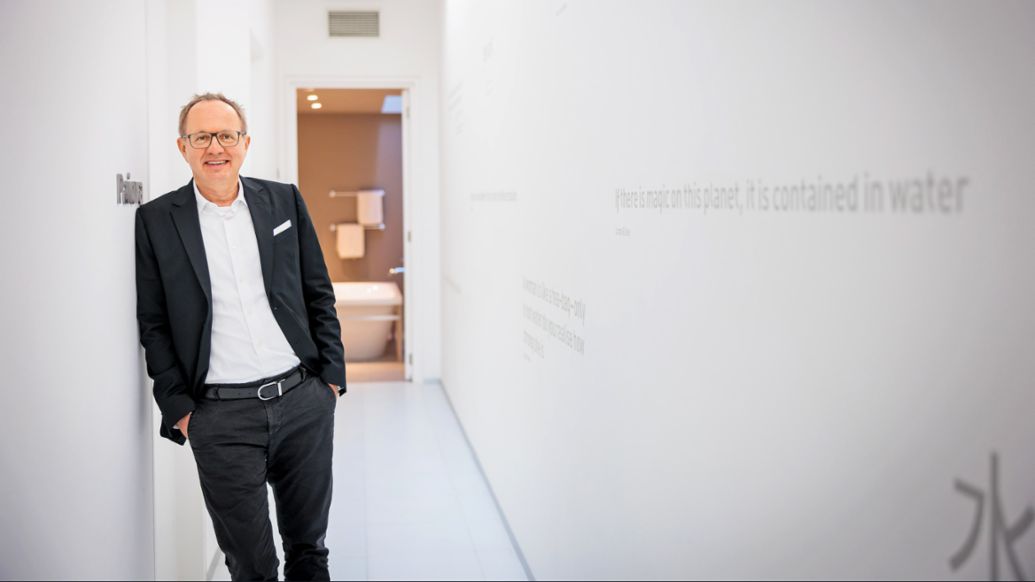
Success drives sustainability
For Stephan Tahy, profitability and sustainability are not conflicting aims. Quite the contrary, in fact. In his eyes, economic success and growth are accelerators for running and funding sustainability projects — and thereby enabling the company to actively pursue and reach its long-term sustainability goals. After all, the more a company grows, the more financial resources it has to convert technologies, promote innovations, and build solar power facilities. As the CEO explains, “Duravit has always understood the importance of balancing profitability and sustainability — with a long-term perspective. We’ve set ambitious sustainability targets, but we’ve also only taken steps that are actually possible. We are meeting both challenges: profitability and growth on the one hand, and sustainability on the other.”
Designer Bathrooms: From the Black Forest to the World
Duravit AG, one of the world’s leading producers of designer bathrooms, is active in more than 130 countries. Headquartered in southern Germany in the central Black Forest town of Hornberg, Duravit has a total of twelve production sites in Germany, France, China, India, Egypt, and Tunisia. With around 7,000 employees worldwide, sales of 715.8 million euros were posted in 2022. The company dates back to 1817, when its founder, Georg Friedrich Horn, established a stoneware factory in Hornberg. Initially focusing on tableware, the range was later expanded to include sanitary ware products. In 1950, Duravit switched from stoneware to porcelain sanitary ware, and since 1960 it has become well known under the Duravit brand name. In addition to ceramic ware, the portfolio of this complete provider includes bathroom furniture, showers, tubs, wellness systems, shower toilets, fixtures, and accessories as well as installation systems.
Management Support from Porsche Consulting: "Duravit’s Road to Sustainability"
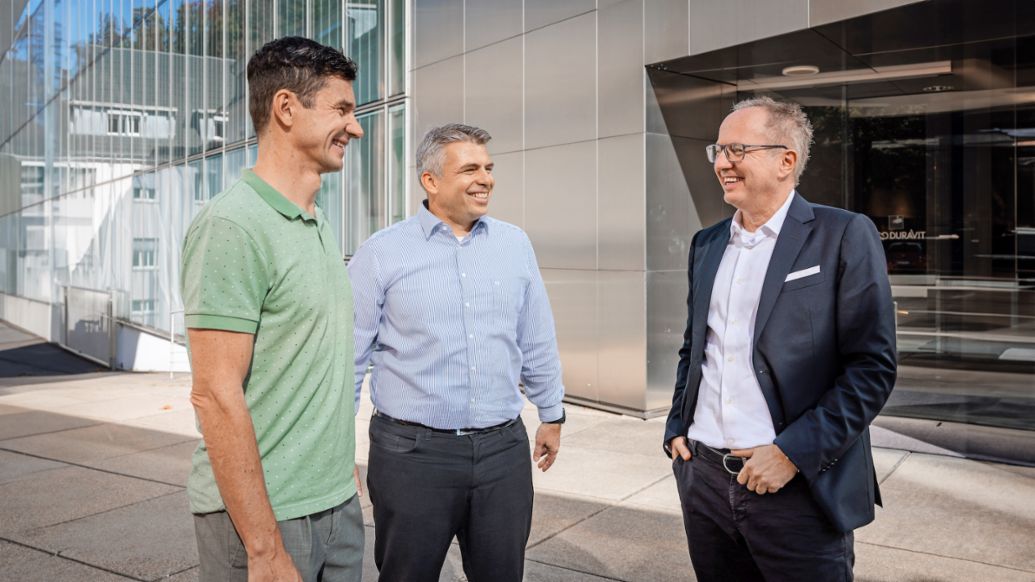
To guide his company’s sustainability activities on a future-oriented course, Stephan Tahy, CEO of the Duravit bathroom producer, brought the Porsche Consulting management consultancy on board in 2021. The goal was to develop a sustainability strategy with a 2045 horizon and pragmatic means of implementation. “An outside perspective was important to us,” says Tahy. “We had already done a lot of sustainability work. What was missing at that point was a strategic and systematic approach to the topic.”
Eight weeks to a strategy
An intensive period of collaboration started in September of 2021. In a two-month strategy phase, the project team crystallized the essential components of sustainability for Duravit. The first step consisted of analyzing and benchmarking competitors’ sustainability efforts. The Porsche consultants also scrutinized the sustainability initiatives already undertaken by Duravit. “For us it’s crucial that the sustainability strategy and associated measures are tailored to the individual company and fit in well with its business model,” explains Thorsten Ertel, Senior Manager and sustainability expert at Porsche Consulting. “We looked at that very closely for Duravit, and put it to critical analysis.” One major result: the sustainability campaign should assign special significance to water, a resource that plays a central role not only in the bathroom maker’s products but also in its manufacturing processes.
The project team then crafted a strategy that stands on four pillars: water, climate, resources, and people. They also developed a vision for attaining climate neutrality by 2045, and used it as the basis for deriving a solid package of measures. From the initial 70 ideas, 23 initiatives were selected and converted into a road map for implementation.
Ideas become reality
Since February of 2022, Porsche Consulting’s sustainability team has been guiding Duravit in further developing and implementing these measures. “We were especially impressed by the structure and systematic approach the consultants brought to the table,” says Marcus Staudt, Duravit’s HSE manager in charge of sustainability, in describing the collaboration with Porsche Consulting. “The team was constantly giving us new ideas and incentives, and was very good at putting the initiatives we developed into practice in pragmatic ways.”
The collaboration has led to concrete results. For example, the idea of creating new products from waste gave rise to a recycling project featuring a centrifuge. The ceramics plant in the eastern German town of Meißen is already centrifuging 200 tons of raw materials out of the waste mass and channeling them back into production. At the Hornberg site, a centrifuge scheduled for installation in 2024 is expected to recover nearly 10 percent of the material used. That would amount to 550 tons a year at an annual production volume of around 6,500 tons.
Progress to report
The consultants are supporting the ceramics producer in two additional areas of endeavor: drafting a decarbonization road map, and shaping the structure and content of the 2023 sustainability report. Sustainability reporting is an ever more important task for the company. “The EU’s Corporate Sustainability Reporting Directive, or CSRD, came into effect in January 2023,” observes Birgit Engler, the partner responsible for sustainability projects at Porsche Consulting. “That poses new challenges, and we support our clients in tackling them.”
Info
Text first published in Porsche Consulting Magazine.
